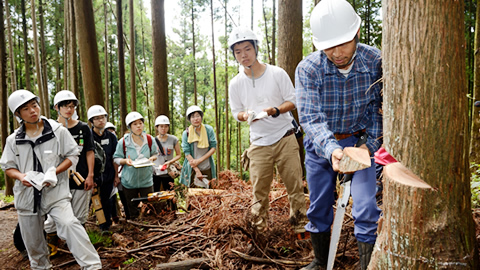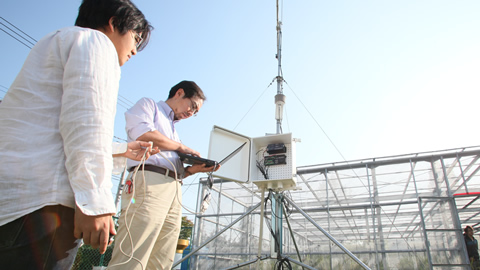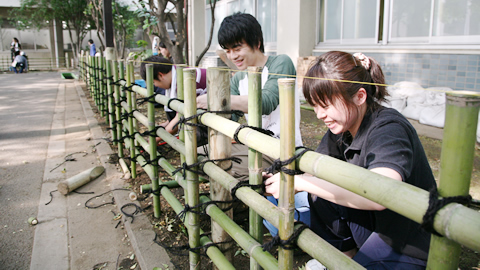Faculty of Regional Environment Science
The objectives of Faculty of Regional Environment Science are to make our society into better coexisting between humans and nature through the suit each of the societies such as mountainous, agricultural, or city-side area through the technology and sociological substance of our department; Forestry, Agricultural Engineering, and Landscape Architecture, based on technologies and philosophy of tradition in our university.
We have to think better of our lifestyle and match it up with both of our local societies and nature. Because of the evolution of transportation and tele-communication system, rapid urbanization is bringing into rural area. That makes environmental problems or energy and resource problems serious. And also the regions which our lives as mountainous, agricultural, or city-side area, have many problems with forestry or agricultural or environmental factors based on the population change, such as under or over population. It is the purpose of our faculty that conduces to solve global problems acting on integrated with the collaborating nature and the activation of local society. ”Think globally, Act Locally" is this faculty’s Key Words.
The academic curriculum of this faculty has “liberal studies and foundation”, “foundation of specialties and engineering” and “applied engineering”. Especially for the training up engineering specialist, This curriculum is accredited with JABEE(Japan Accreditation Board for Engineering Education; Signatory Organization of Washington Accord since 2005). We also maintain University Forest, Greenhouse, drawing office, and electron microscope for faculty shared.
Departments
General Education
Office of Mathematics
Office of Foreign Language
Laboratory of Physical and Health Education
Attached to the Faculty
Institute of Regional Environment
Director KOYANAGAWA Masashi, Professor
Electron Microscope Center
Director YAGUCHI Yukio, Professor
Okutama Practice Forest
Director FUKUNAGA Kenji, Professor
Deputy Director YAMAZAKI Koji, Professor
SUGAWARA Izumi, Professor




